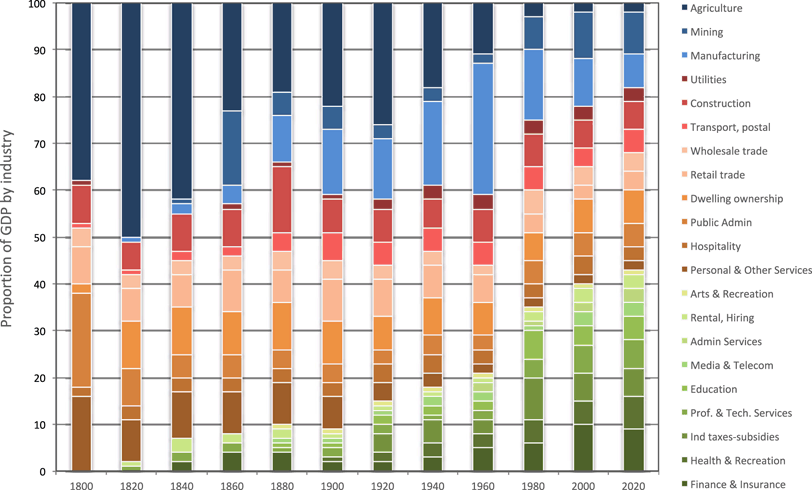Energetic Implications of a Post-industrial Information Economy: The Case Study of Australia

Author: Graham Palmer
Citation:Palmer, G. 2017. Energetic Implications of a Post-industrial Information Economy: The Case Study of Australia. BioPhysical Economics and Resource Quality;2(2): 5.
The article is available here
Abstract: The potential for decoupling of energy and resources from economic growth should enable economic development while improving environmental sustainability indicators. Relative decoupling of energy has been a characteristic of developed nations as a consequence of efficiency gains and productivity growth. The trend has strengthened in recent decades as economies have advanced further into the service economy phase. The next phase of development (the so-called ‘Infotronics’ phase) is being enabled by the rapid growth of information and communications technology (ICT), and artificial intelligence. The question explored in this commentary is whether the Infotronics phase will shift energy consumption in absolute rather than relative terms (so-called ‘strong’ vs. ‘weak’ decoupling), using Australia as a case study. In this context, weak decoupling is defined as a relative reduction in energy consumption per unit of GDP, whereas strong decoupling is also an absolute reduction in national energy consumption. Historic data on Australian primary energy consumption, gross domestic product, GDP deflator, and industrial sectors have been assembled for the period 1900–2014. A time-series linear regression between energy and real GDP was undertaken to explore the historic relationship between changes in the changing structure of the Australian economy and energy consumption. Despite a significant shift towards a service economy, primary energy consumption has remained strongly connected to GDP, but overlaid with distinct long-run trends in energy intensity.
An explanation for the long-run connection is two-fold. The evolution towards greater social and industrial complexity has been underpinned by the ready availability of cheap fuels. The deepening of the service economy towards the infotronics phase should be seen partly as a consequence of available energy supply and productive primary and secondary sectors. Several specific examples of ICT are explored to test the hypothesis, including ICT-enabled remote work, online retail, the ‘sharing economy’, and productivity-enhancing ICT applications. Second, energy consumption is driven by demand for end-use energy services, including transport, buildings and food. Demand for these services is a function of human wants, needs and income, and a changing industrial structure does not alter their underlying demand. The conclusion is that ICT is enabling productivity gains and new business models, but does not significantly weaken the demand for these services, and therefore does not enable strong decoupling.